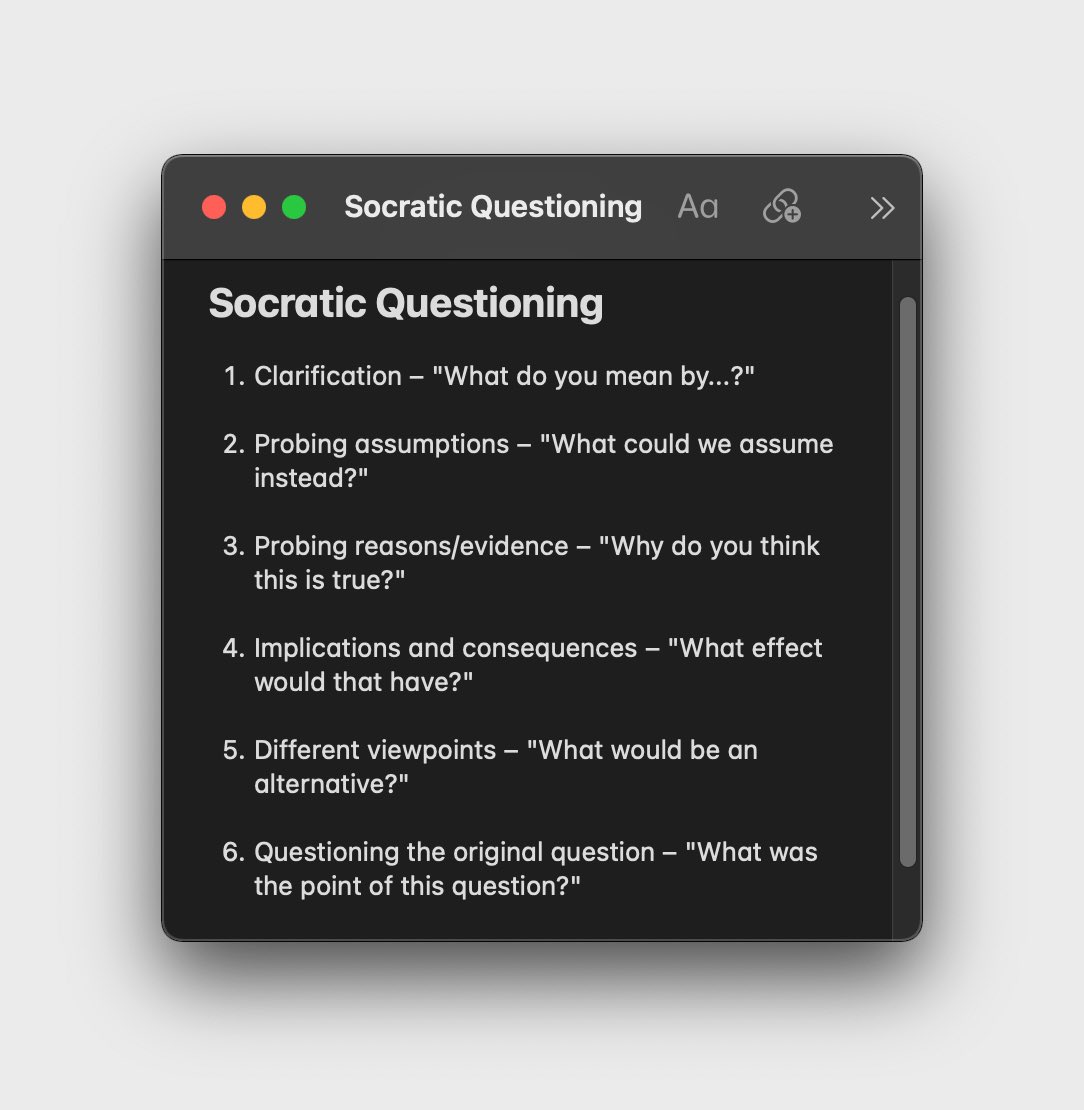Elon Musk (@elonmusk) on First Principles Thinking:
It means "boiling things down to the most fundamental truths and then reasoning up from there."

People ask how I\u2019m so productive.
— Ryan Breslow \U0001f57a (@theryanking) January 22, 2022
The secret: productivity is a process of REMOVAL.
Time is such an easy thing to waste...
Here\u2019s what you can remove from your life to save up to 60 hrs/week \U0001f447\U0001f447\U0001f447
Over 70% of kids play video games every day.
— Ana Lorena Fabrega (@anafabrega11) January 28, 2022
Everyone thinks they should play less\u2026
\u2026but here\u2019s an interesting case for why they should play MORE \U0001f3ae\U0001f447\U0001f3fc
I made $0 online in 2019.
— Justin Welsh (@JustinSaaS) January 26, 2022
3 years later:
- 100M+ impressions
- $1.7M in online income
- 4 successful revenue streams
What changed?
I started writing online every day.
Here's my simple 4-step process.
[Short \U0001f9f5]
If you're looking in the right places, the internet is a treasure trove.
— Steph Smith (@stephsmithio) January 23, 2022
The best internet gems you've never heard of:
I've helped probably 700 startups redo their websites.
— Julian Shapiro (@Julian) February 26, 2021
These 4 marketing patterns stood out to me \U0001f9d9\u200d\u2642\ufe0f
Marketing isn\u2019t a scam
— GREG ISENBERG (@gregisenberg) June 19, 2021
Marketing makes change happen. Marketing makes your creations known
I'll share some tactics & frameworks I use
How to get lucky in marketing in 2021:
Apple, Nike, Coca Cola.
— Zain Kahn (@heykahn) September 7, 2021
3 legendary companies. 1 common marketing trait:
Great copywriting.
Here are 10 copywriting tips to help you master marketing:
I\u2019ve audited 500+ websites over the past 6 years.
— Blake Emal (@heyblake) May 4, 2021
Here are 17 learnings to help your landing page convert:
I asked, \u201cWhat are the best YouTube channels for learning (any subject welcome)?"
— Brian Feroldi (@BrianFeroldi) August 7, 2021
I received 259 AMAZING responses
Here are 20 top channels that will make you smarter:


